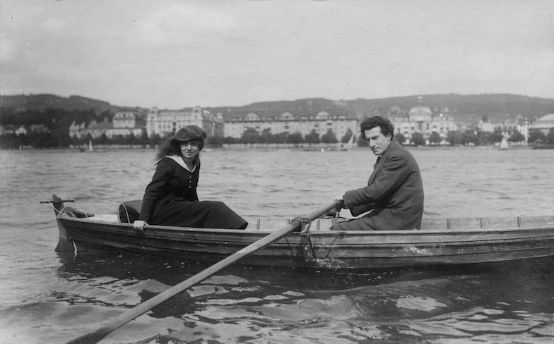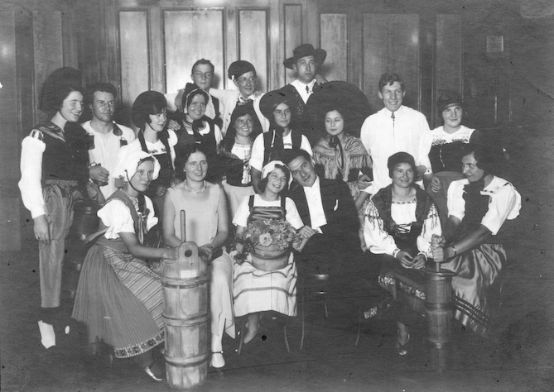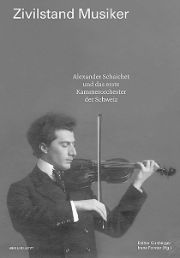Fierce idealist
Alexander Schaichet not only enriched the Swiss music scene in the first half of the 20th century by founding the Zurich Chamber Orchestra. The biography edited by Irene Forster and Esther Girsberger also impresses with the testimonies of former students.

A biography is always tricky: Here the person, who should of course be the focus. On the other hand, there are the social and cultural conditions that open up opportunities for action, but also restrict them. Alexander Schaichet (1887-1964) was a strong personality. But even the outstanding conductor, violinist and violist sometimes found his hands tied when harsh reality struck.
The entertaining anthology Civil status musician - Alexander Schaichet and the first chamber orchestra in Switzerland reads like the combative path of a tireless idealist. Schaichet was "stranded" in Zurich in 1914. The outbreak of the First World War prevented him from returning to Jena, where he already had a position as concertmaster at the age of 25. Schaichet became a stroke of luck for Zurich's music scene, particularly through the founding of the Zurich Chamber Orchestra in 1920.
-

Cheerful celebration of the Zurich Chamber Orchestra after a performance on November 29, 1928 with the child prodigy Annie Fischer in the Zunfthaus zur Waag. Sitting in the front center, between Irma and Alexander Schaichet Annie Fischer. Photo: Zurich Central Library, Music Department, Mus NL 38
Under adverse conditions, the small orchestra played even the unwieldy works of the avant-garde of the time. The fact that Schaichet had to make do with amateurs due to constant funding problems was no reason for critics of the time to qualify their criticisms. Ernst Isler, a reviewer for the NZZ, apparently went so far as to question the chamber orchestra's right to exist in 1925. Schaichet was quite right to defend himself against such attacks. In his letter to Isler, he posed an eloquent question that also highlighted his own commitment: "Do you believe that an experience can be guided by technically perfect mastery?"
Despite the irrepressible energy of its founder, 1943 was the end of the chamber orchestra. The anti-Semitism directed against Schaichet and the competition with the much richer Collegium Musicum literally left little room for maneuver in Zurich.
The thoroughly edited and richly illustrated anthology captivates with its personal tone. Not only the printed memories of former students contribute to this; the texts by Verena Naegele, Michael Eidenbenz, Dieter Ulrich and Peter Hagmann are also very vivid, offer music history as cultural history and skillfully weave in the person of Schaichet. In addition to further information, all concert programs from the 23 years of the Zurich Chamber Orchestra's existence are available on the website https://schaichet.ch/de/ to view.
Zivilstand Musiker - Alexander Schaichet und das erste Kammerorchester der Schweiz, ed. by Esther Girsberger and Irene Forster, 216 p., 60 ill., Fr. 39.00, Verlag Hier und Jetzt, Zurich 2020, ISBN print edition 978-3-03919-481-0








